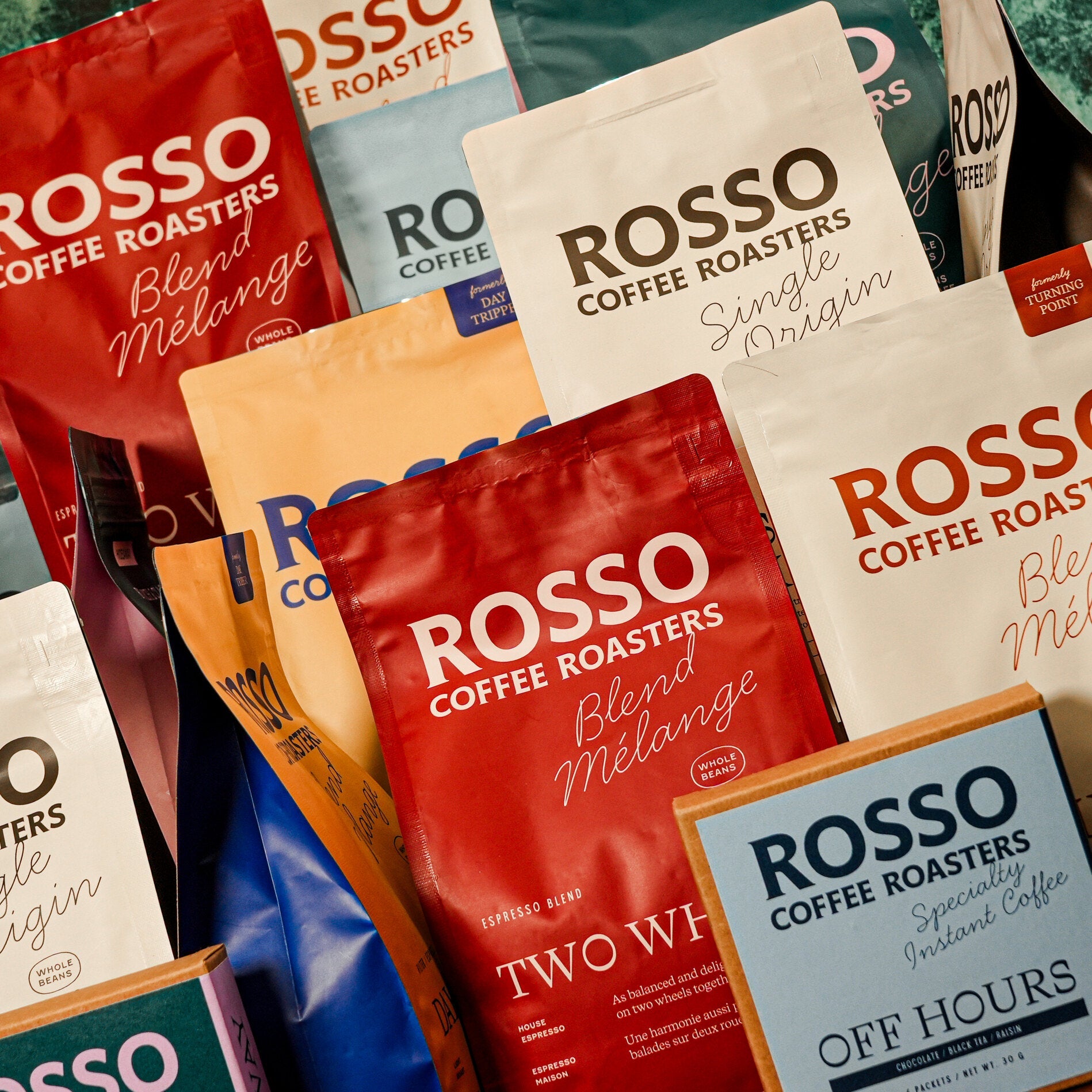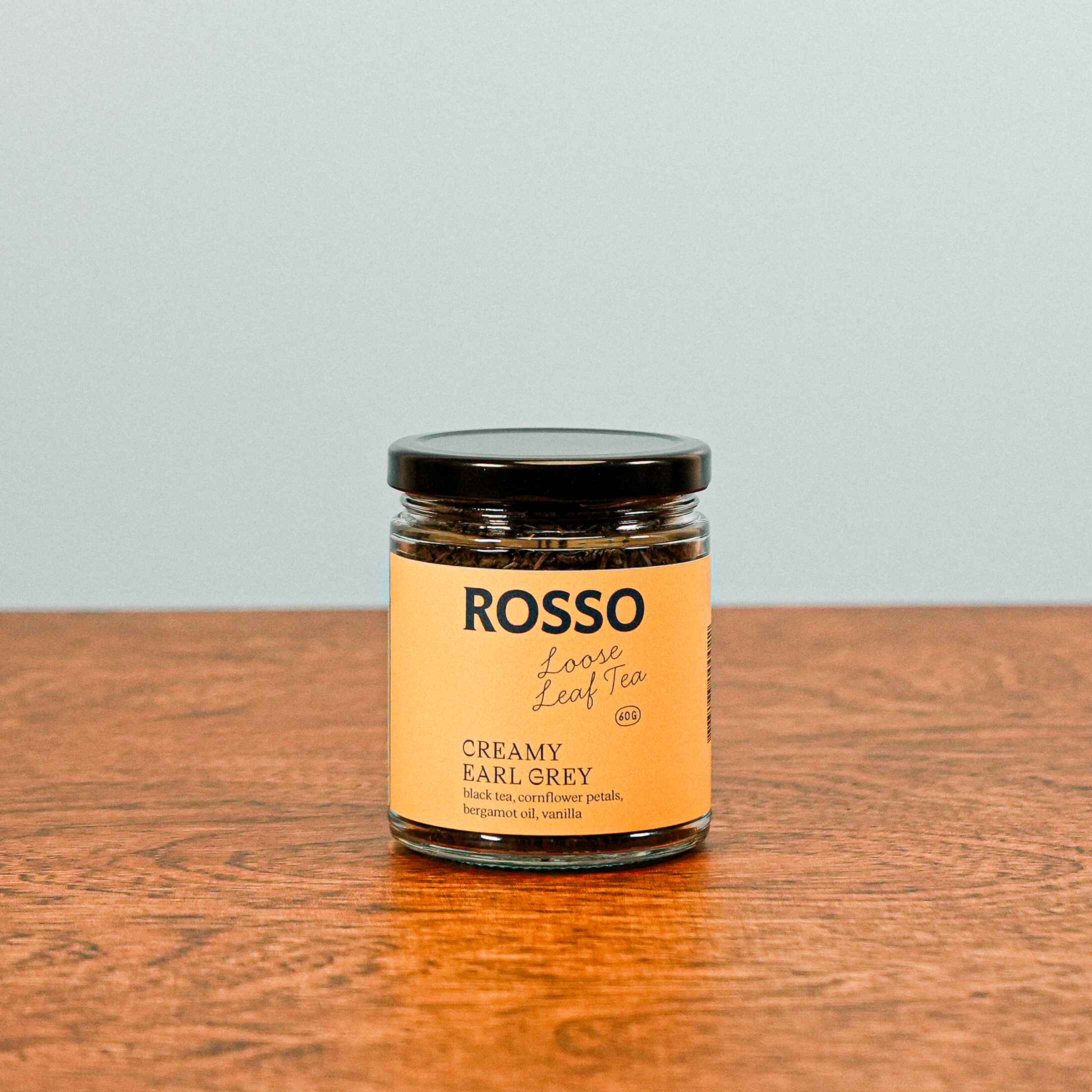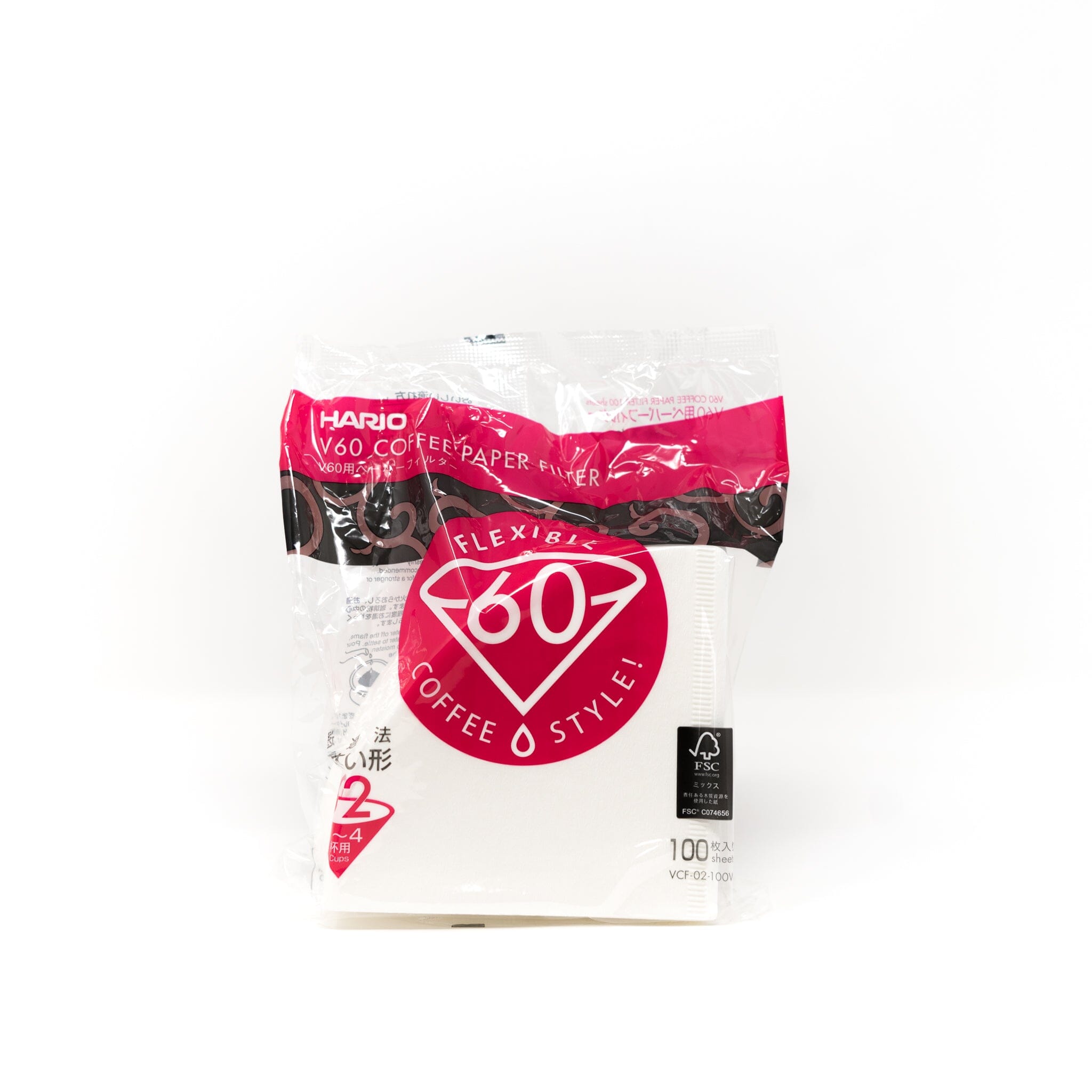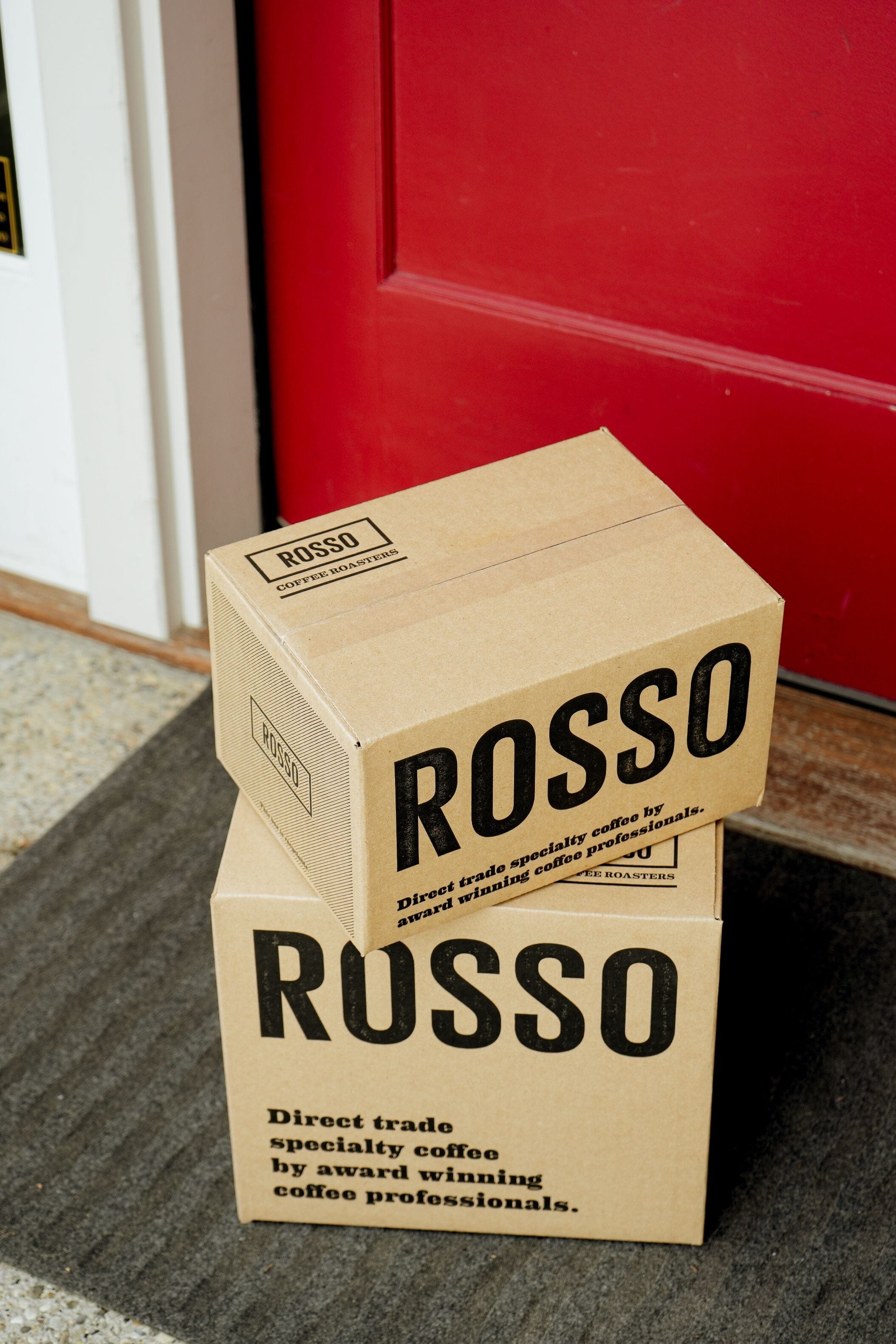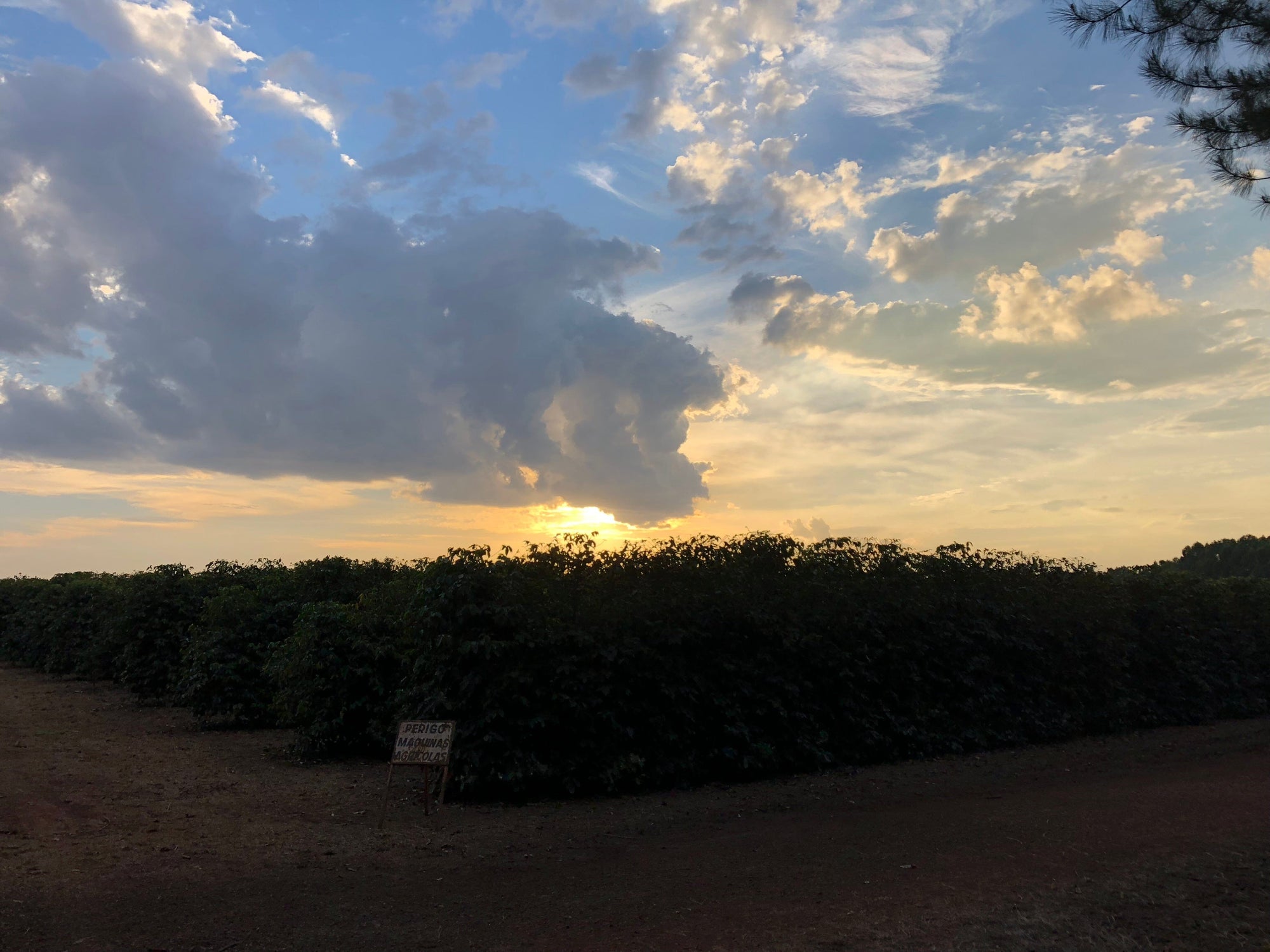

Daterra
On Sunday, August 5th, I landed in Sao Paulo, incredibly early in the morning. There, waiting at the airport, were three guys I regard as coffee legends: Lex Wennecker, Mathieu Theis and Michalis Katsiavos. The 2nd, 3rd and 4th place finishers at the 2018 World Barista Championship. Together, we were to embark on an extremely memorable week at Daterra Farm, near the city of Patrocino in Minas Gerais, Brazil.
When I first arrived, I didn't know what exactly to expect from the week. I didn't know the guys very well at all, we'd really just shared short interactions from the WBC and I knew little about Daterra itself. Simply happy to be a part of the adventure, I went in with an open mind ready to learn about coffee and have a nice time.
When I first arrived, I didn't know what exactly to expect from the week. I didn't know the guys very well at all, we'd really just shared short interactions from the WBC and I knew little about Daterra itself. Simply happy to be a part of the adventure, I went in with an open mind ready to learn about coffee and have a nice time.
We spent the rest of that Sunday in Sao Paulo, touring around to some beautiful cafes and getting to know the coffee culture that's really blossoming here in Brazil. The country easily produces the most coffee in the world, but the culture of going to a cafe and enjoying a coffee has really just begun. We drank a wide spectrum of coffee that came from producing states all over the country and toured what turned into nearly a dozen cafes before the end of our trip. Many different flavour profiles struck us, with the common features being sweetness and balance. After coffee, we transitioned to some funky bars and got into the caipirinhas - a traditional Brazilian cocktail made with a sugarcane based spirit called cachaça. After a few of these tasty concoctions, our hosts joined us for dinner and gave some context for the week - Juliana and Gabriel from Daterra.
The next morning started with a 3:45 alarm. We had a 6am flight to catch to Uberlandia, the closest airport to Patrocino, which was about an hour long flight and something like two hours by car after that. We turned my hotel room into an impromptu cafe as I always travel with an electric kettle, a nice hand grinder, scale and pour over. I know, I'm a nerd. We each brought coffees to share during the week, so we cracked them open and made a couple of killer brews that morning. I had Myin Dwin from Myanmar and both Lex and Michalis had a Gesha Village lot. Not a bad way to start an early Monday morning.

When we arrived at the farm, I was shocked by the scale. Between two farms, Daterra has 6600 hectares of land, with 2700~ planted with coffee. That's 10% of the land that defines the city of Calgary. Woah. As the week progressed, I was constantly impressed by the dedication to quality, sustainability and the systems that were in place at every step of the operation.
They have nearly every certificate possible, from Rainforest Alliance, to UTZ, to B Corp. The B Corp was very impressive to me as that's something we're working on becoming with Rosso. It essentially means Better Business, giving structure and standards to 'best practices' amongst a handful of different categories, such as sustainability, ethics and governance. There are maybe 3000 companies world wide with this certification. It was amazing to see it on a coffee farm and slightly unexpected.
During the week at Daterra, the four of us baristas were given the task of producing a nano-lot of coffee. It gave us a way to relate to each step of the production that we were learning about, and it played nicely into our competitive nature. We had four different varieties of coffee we could choose to harvest - I personally chose Red Bourbon, as I tend to find pleasant sweetness and a well rounded cup out of this variety. We had two hours to harvest our selection. Then spent the evening processing. The big trend in the WBC this year amongst the finalists was anaerobic fermentations, so everyone chose a style of anaerobic fermentation for their nano-lot. I took a slightly different approach as I wanted to try something totally different, thinking I likely wouldn't get the opportunity to do an activity like this again. Here's what I did, in summary, but still really lengthy:
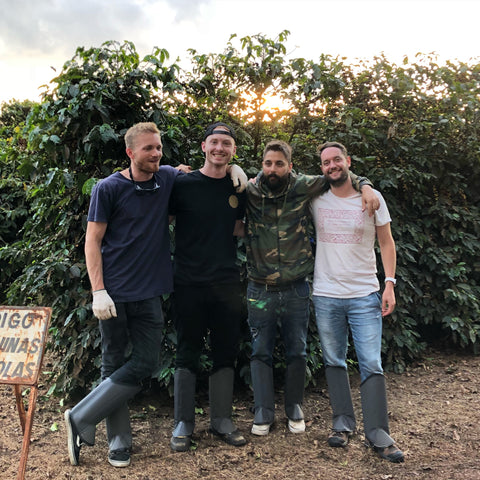
First, I found a stainless steel container with a removable lid (originally used for boiling rice on the stove) and I loaded my cherries into this vessel. I proceeded to macerate them by hand until I felt I had pulverized the majority of the cherries and exposed both the mucilage and the seeds. My goal was to have the seeds sitting directly in the mucilage so they could absorb the sugars, making for a lifted sweetness to the cup profile.
The next move, was where things got a little abnormal. I took this stainless steel pot and I placed it on top of a frying pan on the stove, bringing the coffee inside to a constant temperature around 45 ° C. I used the frying pan to evenly distribute the heat on the bottom of the steel container. My thought was to make the seeds more porous because of the heat and to open a passage for the sugars to penetrate the beans quickly and to concentrate the sugars. Kind of like using hot water to wash your face or hands - it helps open your pores and allows the soap to do its work. I left the coffee here for approximately an hour with the lid on. The result was a very jammy, very sticky mix of coffee, cherry skins and mucilage. It smelt delicious and we collectively thought it tasted incredibly sweet too. I would have spread it on toast, let's put it that way.

After this heating stage, I cooled the whole thing down in a water bath, hoping I'd bring the seeds back to regular form and to allow the sugars to thicken back up. Then, I transferred everything into a clean plastic bucket and stuck the entire thing in the freezer over night. I thought this would maybe trap everything inside the seeds, trapping the sugars and elevating the sweetness as intended.
The next day, I pulled the now frozen coffee out of the freezer and let it thaw out. That afternoon I pulped and cleaned the small amount of coffee I had harvested. It was still cold to touch and very sweet. We each put our coffees into a small mechanical dryer over night, so we could sort, roast and cup the coffee before Thursday, when we were scheduled to leave. Note, this is not the ideal amount of time to pick, process, dry, sort, roast and evaluate a coffee.

I had the opportunity to roast all 350 grams of my coffee in a little Probatino. I had one shot at it and I was initially worried that I completely underdeveloped the coffee and wouldn't get much in the way of flavour when we cupped.

On Thursday, before leaving Daterra, we cupped our coffees. There were five members of Daterra's team, plus the four of us baristas involved in the tasting. The five members were giving true scores and full feedback as if it was a coffee produced on the farm. The four of us were trying to figure out who was who and picking our favorites - hoping that it was our coffee. We mutually agreed cup 4 and 3 were the best. Number 4 was more complex and had a little more acidity, where number 3 was more sweet but somewhat muddled flavours. It turned out the five Daterra members thought the same and somehow their scores averaged out to 84.95 for both these cups - a tie! I'm happy to say one of them was my strange approach to processing. The other was Lex's anaerobic fermentation - also Red Bourbon!

I have a tiny bit of this coffee coming home with me to share if anyone is interested. I'm also pretty thrilled I won the Masterpiece coffee of my choice - Semi-carbonic Geisha!
Masterpieces are coffees where Daterra does unique styles of processing, different approaches to cultivation or maybe just superior lots to the others. The Masterpieces score 88 points or higher, and we were fortunate enough to taste 10 of them! I scored 5 of them, 90 points or more. Looking forward to sharing!!
Looking back, it was a really nice time at Daterra. They were gracious hosts and even threw a June-party for us one night, even though it was the middle of August. This consisted of a mechanical bull, fishing in a plastic tank and a ring toss - another friendly competition. Loads of fun. I'm sad to say my Calgarian-roots didn't help me win the contest on the mechanical bull...
We had two days in Sao Paulo together after leaving the farm. We toured many coffee shops, as I mentioned above. Some highlights were Um Coffee, Coffee Lab, Futuro and Pato Rei Coffee Brewers. Each had a unique offering, unique cafe setting and fantastic hospitality. The real highlight was karaoke in Japantown, but I'll leave that part out of the story.
Overall, it was a pretty memorable week with a really solid group of people. I'm happy to have some great friends around the world that, hopefully one day, I can go and visit. I'm also looking forward to a future visit to Daterra.
